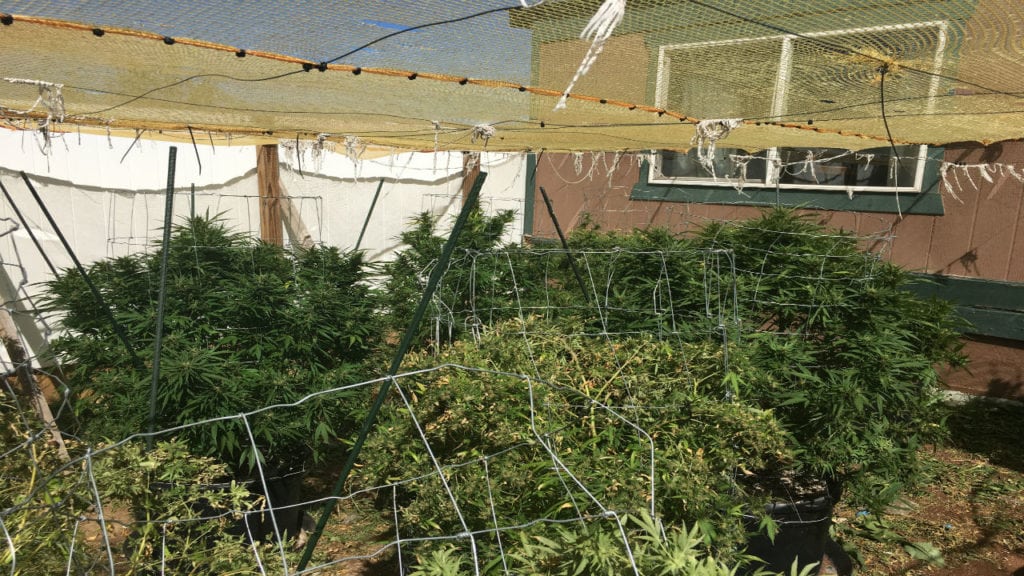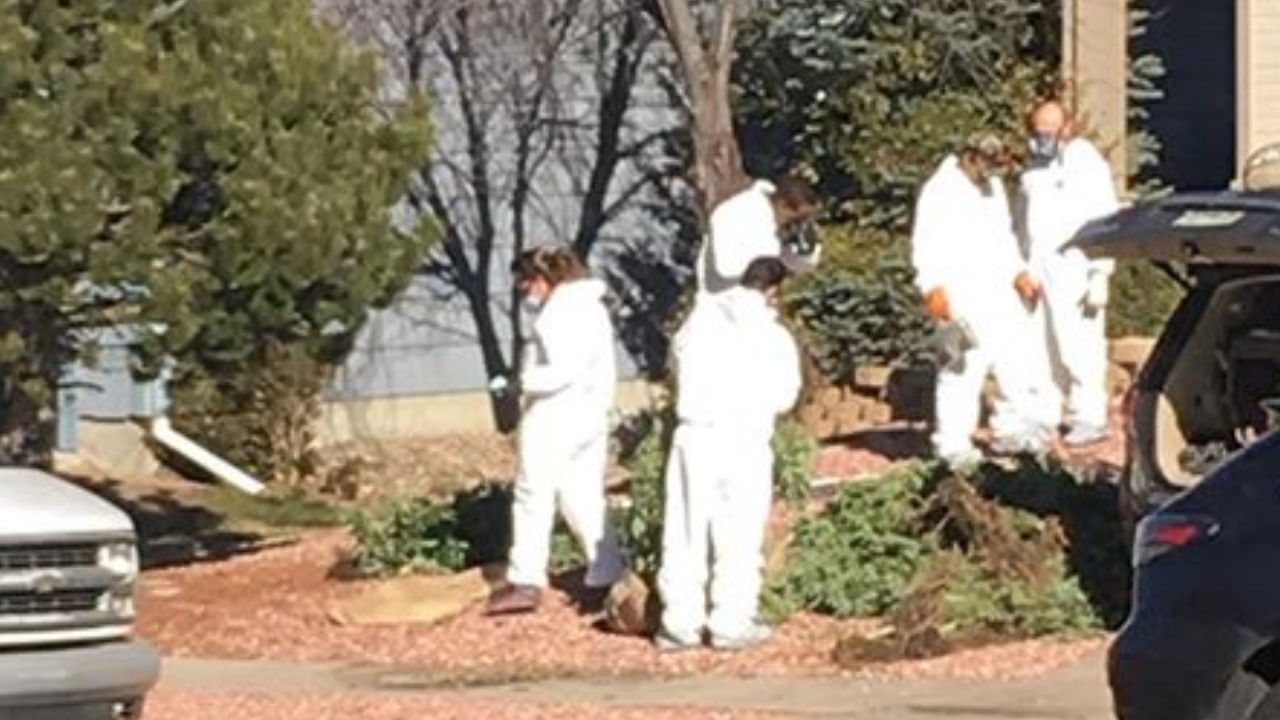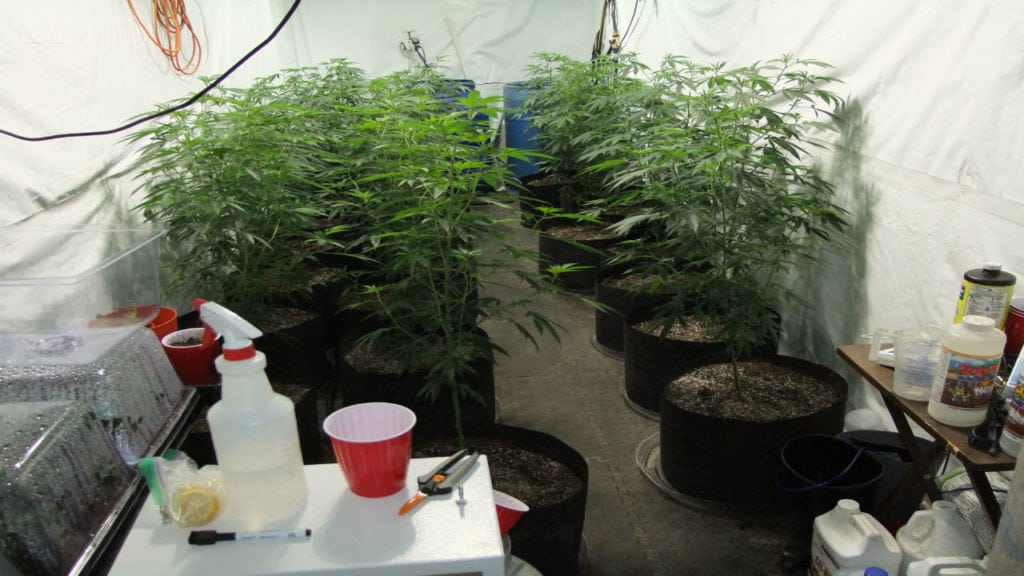COLORADO SPRINGS- Right now there are hundreds of illegal marijuana grows operating in areas across El Paso County. Shutting down these illegal grows continues to be a top priority for the sheriff and surrounding law enforcement agencies, but we wanted to know if this aggressive approach really making a difference? News 5 Investigative Reporter Patrick Nelson spent weeks searching for those answers in the fight against illegal marijuana.

To understand just how big the problem has been in El Paso County we’ve got to look at the numbers. El Paso County Sheriff Bill Elder says in January of 2018 there were an estimated 650 illegal marijuana grows countywide. Since then, investigators believe they’ve eliminated hundreds of illegal grows and number of illegal marijuana grows is believed to be less than 250.
Sheriff Elder says there are reasons for the progress, but also plenty of challenges ahead.
“Manpower wise we don’t have anywhere near the manpower and this is the largest sheriff’s office in the state,” said El Paso County Sheriff Bill Elder.
It’s a multi-agency effort fighting illegal marijuana operations in El Paso County.
“The black and gray market is alive and well,” said Lt. Bill Huffer who is is spearheading the operation for the El Paso County Sheriff’s Office. “We’ve pulled dozens of firearms out, we have convicted felons that are running these black market grows they have millions and millions of dollars invested in their operation and they want to protect it.”
The dangers haven’t stopped investigators from targeting these grows at a record pace. In 2018, investigators served 105 search warrants tied to marijuana.
“That’s an operational tempo most tactical teams would have tough time keeping up with,” said Elder.
Also following up crucial Crime Stoppers tips from the public investigators followed up going door-to-door at 89 homes in and around Colorado Springs.
In their 2018 searches in El Paso and Teller Counties investigators seized 7,520 marijuana plants, more than 1,800 pounds of processed marijuana, 175 weapons, more than $1,500 in cash and made 43 arrests.
“What these drug trafficking operations try to do is hide in plain sight. they try to hide under the guise of medical marijuana mostly,” said Lt. Huffor.

But black market marijuana grows are just part of the problem. Even legal dispensaries must be carefully watched.
“Not just us, but the police department and Metro VNI had cases where people might be selling marijuana out the back door of a dispensary things like that. so we call that gray because well it is a legal operation on its face, but there may be some illegal activity behind the scenes that is going on as well,” said Lt. Huffor.
Initially a Colorado resident could grow almost 600 marijuana plants in their home, but a 2017 change in state law capped that number at 12 plants. Sheriff Elder says that has helped investigators crackdown, but the state could still use stiffer penalties.
“You can’t just slap somebody’s hand if they are growing 600 plants and expect them to stop. the return on investment for moving into other parts of the country is so high that the risk has to be worse than the reward,” said Sheriff Elder.
John Harding is a Colorado Springs resident who became involved in the marijuana conversation at city hall after witnessing a grow operation pop up on his street.
“Cuban nationals came in under the guise as caregivers and were growing vast amounts of marijuana. hundreds of plants in a residential home,” said Harding.
After speaking at city council John became a member of the city’s marijuana work group. He’s met with law enforcement and elected leaders all over the state.
“What I’ve seen is a drip into the system to help combat illegal marijuana and I’ve seen a flood of negative ramifications that are affecting our children and our neighborhoods and our public safety and i would just love for folks to wake up and see that,” said Harding.

With some Colorado Springs council members debating whether to allowing recreational marijuana there will likely be new challenges ahead in this fight to protect public safety. In the meantime, law enforcement leaders plan to continue applying pressure on marijuana criminals.
“The word is out that we are coming,” said Sheriff Elder. “We are constantly chasing our tails to try and get the lid back on the jar and we will get there eventually it’s just a tough business.”
Despite eyewitness testimony, some people still don’t see illegal marijuana as a threat to public safety. In response, the El Paso County Sheriff’s Office is now keeping the numbers to reflect calls for service that are directly tied to marijuana. In the month of January alone, deputies and officers responded to at least 43 emergency calls involving marijuana. Those calls included traffic stops, burglaries and domestic violence. The sheriff’s office hopes these statistics will help our community to better understand the impact of illegal marijuana in 2019.

